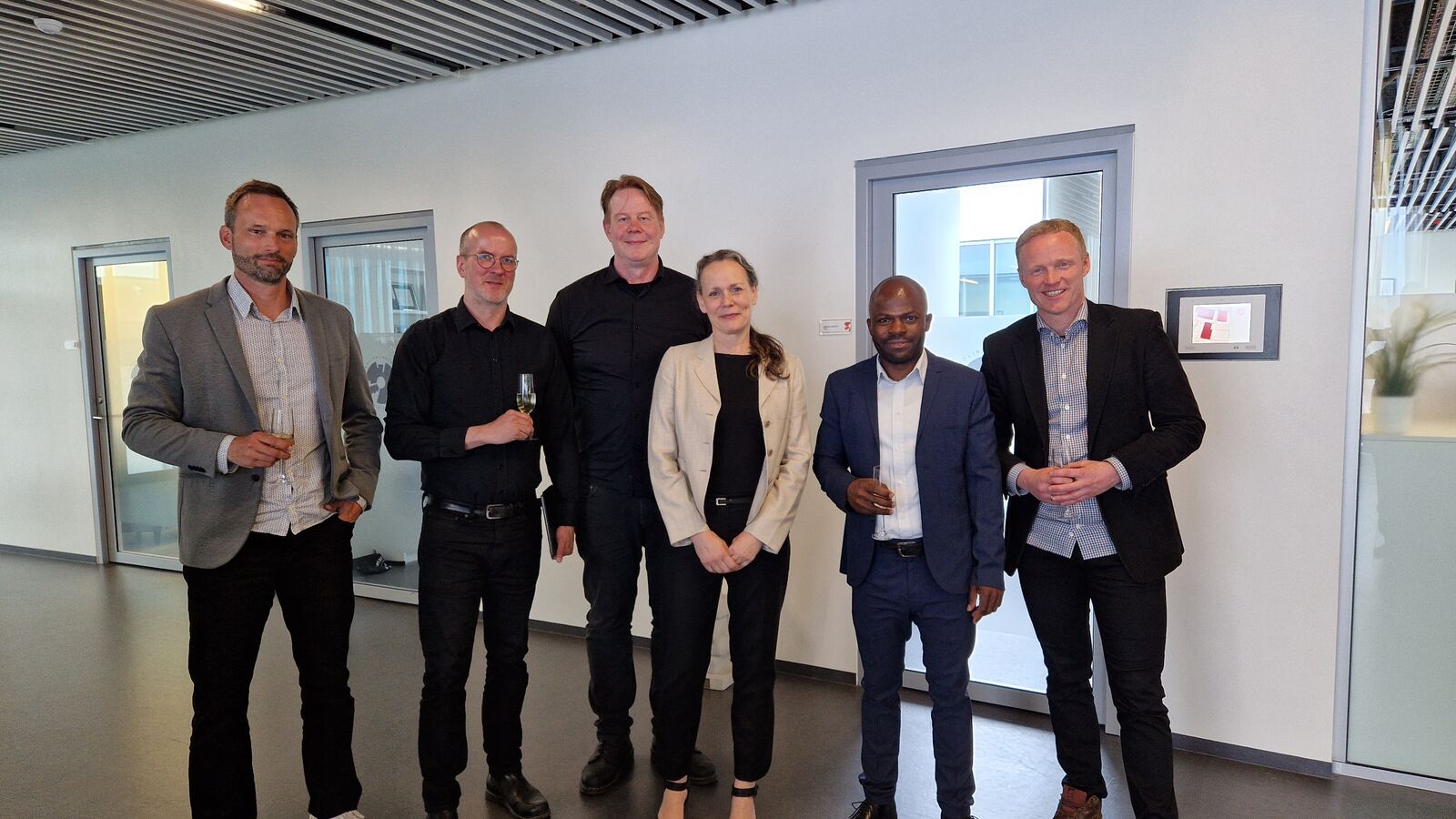SIF Scholar Xavier Shioya Musonye Successfully Defends his PhD Thesis
Optimization-based modeling of Kenya's energy system for pathways towards access to secure, affordable, and sustainable energy services
REYKJAVIK, May 17 - At 13:00, Xavier Shioya Musonye successfully defended his culminating doctoral research in M103. Xavier performed optimization-based modeling of Kenya's energy system in order to uncover pathways towards secure, affordable, and sustainable energy services. His thesis committee was composed of Dr. Hlynur Stefánsson, Dr. Eyjólfur I. Ásgeirsson, and Dr. Ragnar Kristjánsson of Reykjavík University, as well as Dr. Brynhildur Davíðsdóttir, at the University of Iceland. Dr. Kenneth Karlsson, Senior Project Manager at IVL Svenska Miljöinstitutet, served as Xavier's examiner.
 Through his research, Xavier developed a quantitative energy system-planning model for Kenya to evaluate pathways towards access to secure, affordable, and sustainable energy services for the 2020 to 2050 period. His study firstly establishes the gaps in the existing national-scale energy modeling systems for the Sub-Saharan African countries. Secondly, his study uses the Integrated MARKAL-EFOM System-VEDA (TIMES-VEDA) energy-modeling framework to develop a national-scale energy system optimization model for Kenya called the Kenya-TIMES.
Through his research, Xavier developed a quantitative energy system-planning model for Kenya to evaluate pathways towards access to secure, affordable, and sustainable energy services for the 2020 to 2050 period. His study firstly establishes the gaps in the existing national-scale energy modeling systems for the Sub-Saharan African countries. Secondly, his study uses the Integrated MARKAL-EFOM System-VEDA (TIMES-VEDA) energy-modeling framework to develop a national-scale energy system optimization model for Kenya called the Kenya-TIMES.
His developed model is then used to evaluate the grid-supplied generation-expansion pathways in a secure, affordable and sustainable manner. Xavier's results indicate that energy planning using an integrated energy systems model will be vital in achieving high-energy access levels while limiting GHG emissions at national and regional levels in the Sub Saharan Africa region. To meet the projected demand in the short- to medium-term in an affordable, secure, and sustainable way, Xavier states that the Kenyan government should prioritize developing geothermal and hydropower resources. He goes on to suggest that for the long term, the Kenyan government needs to enact and implement policies that will accelerate the deployment of renewable energy technologies.
According to Xavier's research, implementing a hybrid of renewable energy subsidy and carbon tax policies could provide an effective and efficient low-carbon pathway for Kenya's power generation expansion. He lastly states that refined data and advanced energy planning tools could be more efficient in informing energy planning decisions and guiding Kenya's and the SSA region's energy objectives.
Xavier concludes sharing that overall, his work sets a benchmark for developing a national-scale energy-planning model using advanced energy planning tools, and using it to guide the national energy objectives and decisions that could be adopted by the Sub-Saharan Africa countries.
Congratulations Xavier for an excellent doctoral thesis defense!

